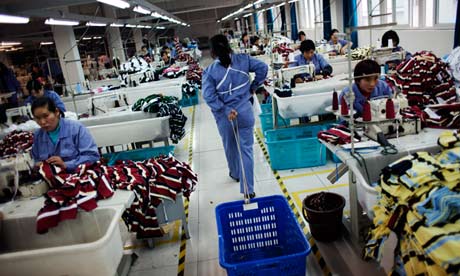There's Nothing Especially Educational About Factory-Style Management
by Frederick M. Hess • Apr 9, 2014 at 8:33 am
Cross-posted from Education Week
Cross-posted from Education Week

Reform critics dismiss efforts to rethink leadership practice, recruitment, and training as an effort to import "business" thinking into K-12. Meanwhile, it's easy for reformers to sound as if they're just saying we need "better" school and system leaders. In reality, today's leaders struggle with professional norms, training, and circumstances that aren't of their making--and which offer precious little calculated to help forge great schools and systems.
In the early 1900s, influenced by education psychologist Edward Thorndike and scientific management guru Frederick Taylor, proponents of progressive education worked to bring the same standardization and routine to education that they admired in industry and business. The problem, explained Ellwood Cubberley, dean of the School of Education at Stanford University from 1917-1933 and, in many ways, the father of modern school administration, had been that, before 1900, schools had been like "a manufacturing establishment running at a low grade of efficiency."
In short, progressives worked hard to import the best practices of private industry to American education. (This is why the familiar school model bears such an uncanny resemblance to the early-twentieth-century factory.) That model made some sense at the time, helping to manage a massive expansion of schooling in a world lacking modern data tools and communications technology.
Since that era, though, K-12's routines and rules have been largely preserved, as if in amber. Intrusive regulation, petty bureaucracy, and balky decision making have bizarrely come to be treated as part of the schoolhouse culture.
In the private sector, meanwhile, old giants like Univac, TWA, and Xerox have given way to Google, JetBlue, and Apple. These new ventures had the freedom to build brand new cultures, staffing models, evaluation systems, and delivery models that took full advantage of evolving talent, tools, and technology.
In schooling, this passing of the baton is absent. Instead, leaders inherit long-standing schools or school systems. As successive generations of entrepreneurs and thinkers in other sectors have revisited basic There's Nothing Especially Educational About Factory-Style Management :: Frederick M. Hess:
